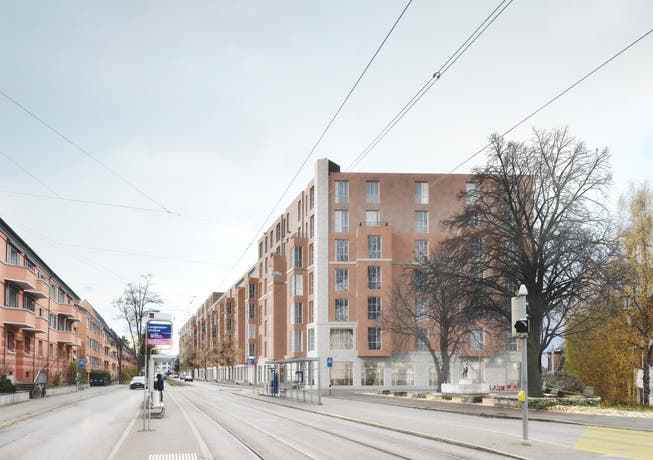The Federal Council proposes changes to building in noise. They are likely to have far-reaching consequences.
In the city of Zurich alone, the construction of hundreds of apartments is currently blocked by noise protection.
“Cannot be approved under noise protection aspects”: With this sentence, the courts have ended many a building project in recent years. For this reason, in the city of Zurich alone, several large projects with hundreds of apartments in noisy locations are on hold after the courts have tightened their practice on noise protection.
This made life difficult for builders and made the city and cantonal authorities increasingly desperate. They simply no longer knew what to advise builders. Because the authorities have the spatial planning mandate to condense. It makes sense to do this in locations that are well connected to public transport. These locations are usually noisy.
Finding a compromise between noise protection and densification seemed increasingly impossible, with consequences: In the canton of Zurich, far too few apartments are being built due to strict noise protection, among other things, and the demand cannot be met. Government councilor Carmen Walker Späh recently drew attention to this in her function as president of the cantonal housing commission in the NZZ.
Now there is movement in the question of building in a noisy environment. The Federal Council wants to change the Environmental Protection Act. A corresponding message to Parliament was published on Friday. If the councils follow his suggestion, several major projects that have been blocked could be taken on again in the foreseeable future.
It is true that building in noisy locations is basically possible under the current legal situation. But you need a special permit. The focus of the discussion is the so-called Zurich ventilation window practice. This allows the cantons to issue permits for excessively noisy apartments if they have a ventilation window facing the courtyard.
Suddenly inadmissible
For example, it is about housing estates on noisy streets, where the bedrooms are placed on the back, quiet side. After a ruling by the Federal Supreme Court in 2016, the practice was suddenly no longer permissible.
The Federal Council is now returning to ventilation window practice – in fact, it would even like to write it into law. He suggests that “at least half” of the rooms should meet noise limits. The proposal even goes further than the “old” ventilation window practice: There, the limit value had to be complied with in two-thirds of the rooms.
A second proposal by the Federal Council is no less important: it would now be possible to build in noisy areas without an exceptional permit. The previous logic, according to which the cantons granted exceptional permits, would be reversed.
One client who is affected by the current court practice is the Oberstrass building cooperative. A settlement for 200 people is blocked on Winterthurerstrasse. There are already apartments there whose residents are much more exposed to the noise than they would be in a new building.

The new building on Winterthurerstrasse could soon be taken up again.
Assuming that Parliament follows the suggestions: How quickly could the building cooperative implement its project? Mathias Ninck, President of the Oberstrass Building Cooperative, says: “Our project would comply with the new regulations. But of course we would have to check that carefully and re-enter it. We would have to start again from square 1 in the approval process.” The board will discuss how to proceed. The prerequisite, however, is that Parliament does not mess up the Federal Council’s proposal.
More legal certainty
Hartwig Stempfle is President of the Zurich section of the Swiss Association of Engineers and Architects. He is relieved: Without the ventilation window practice, it is not possible to build densely in many locations. And the system change away from the exceptional permits creates legal certainty. Because these were always contestable.
As positive as Stempfle sees the latest developments: He reminds us that we have been fighting for a better solution for six years. Thus, economic output was lost for six years. Also six years ago, the GLP National Councilor Beat Flach called for a change in the law with an initiative. He says that the outgoing Federal Councilor Simonetta Sommaruga (SP) still kept her promise to him and implemented the initiative, “quasi as the last official act”.
